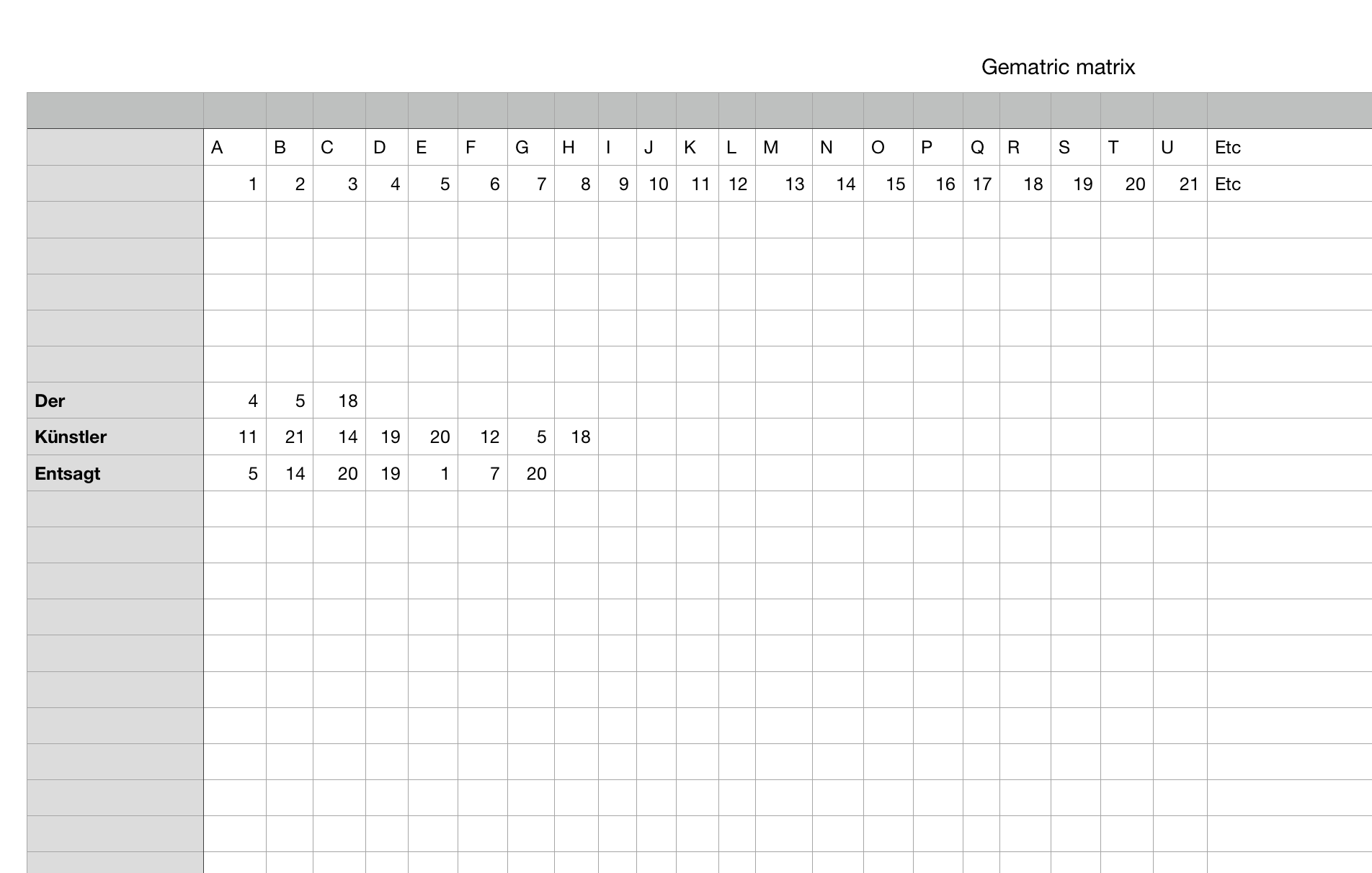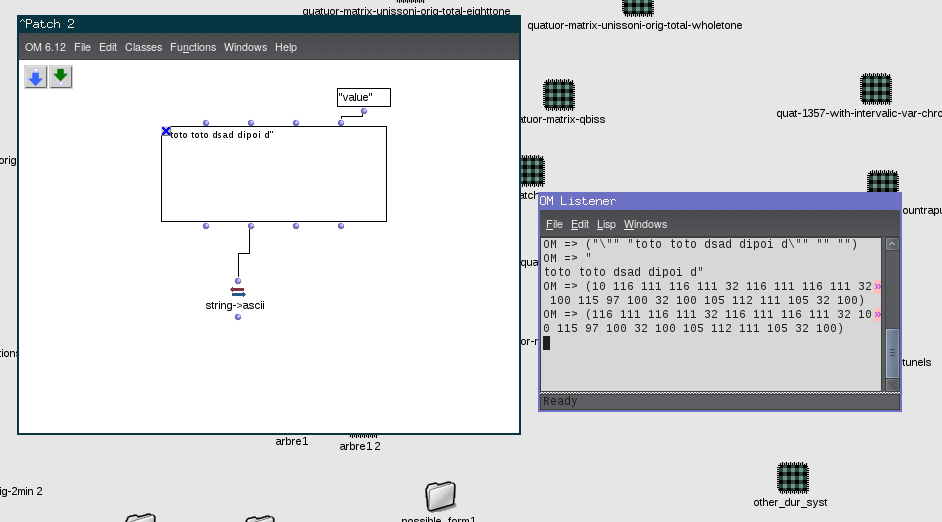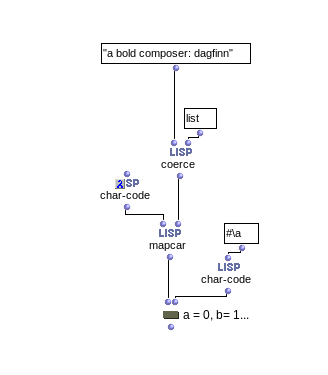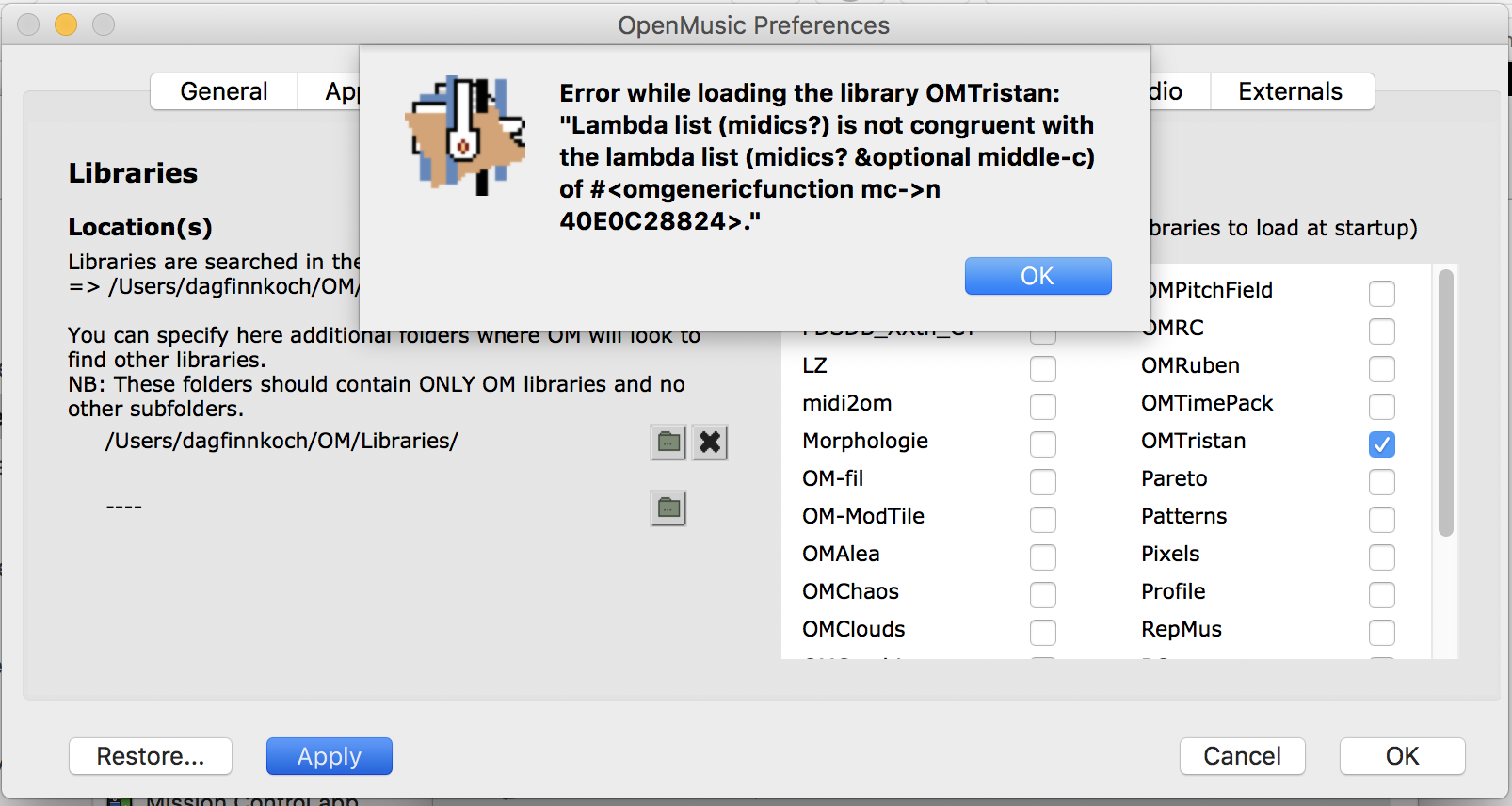Hello, I’m trying to find a straightforward solution to the following problem: Mapping letters to numbers.
For example this short part of a poem by Enzensberger:
«Der Künstler entsagt.»
Das war früher.
«Der unglückliche Künstler.»
Ein Anachronismus.
Er hat sich gestritten,
hat uns mißtraut.
The first sentence would be: 4 5 18 11 21 14 19 20 12 5 18 5 14 20 19 1 7 20
In addition grouped as “words” 4 5 18 - 11 21 14 19 20 12 5 18 - 5 14 20 19 1 7 20
Is the solution to use “if” in combination with a kind of table? And/Or can BPFs be useful.
I think this actually is basic LISP, but I’m a bit lost, and a bit lazy. 
But hope you can help me out.
Best, Dagfinn
The poem by Enzensberger is really relevant for our group. 
Das unglückliche Ohr
«Der Künstler entsagt.»
Das war früher.
«Der unglückliche Künstler.»
Ein Anachronismus.
Er hat sich gestritten,
hat uns mißtraut.
Er ist unbrauchbar, stört.
Nicht als wäre er schwerhörig,
wie Beethoven,
taub von Donner gewisser Sonaten.
Ganz im Gegenteil.
Er hört zu gut. Er hört Stimmen.
Sie wimmeln in seinem Kopf,
bringen Hiobsbotschaften.
Die Wahrheit, eine Montage,
Jahrsehntlang überall Kork,
im Regieraum nur ein Assistent
an zweihundert Reglern.
Hinder dem Schalldichten Glas
offene Münder. Dezibel, Filter.
Es ging um Bruchteile von Sekunden.
Ein splitterndes Geräusch,
dann Leerband, weißes Rauschen.
Das war früher.
Heute brütet er von sich hin,
im leeren Studio,
ein unglückliches Ohr,
während die Kunst sich austobt
auf Auktionen und Festivals.
Die Vergangenheit,
ein unmerkliches Knacken
im Kopfhörer,
ganz dicht am Trommelfell.





